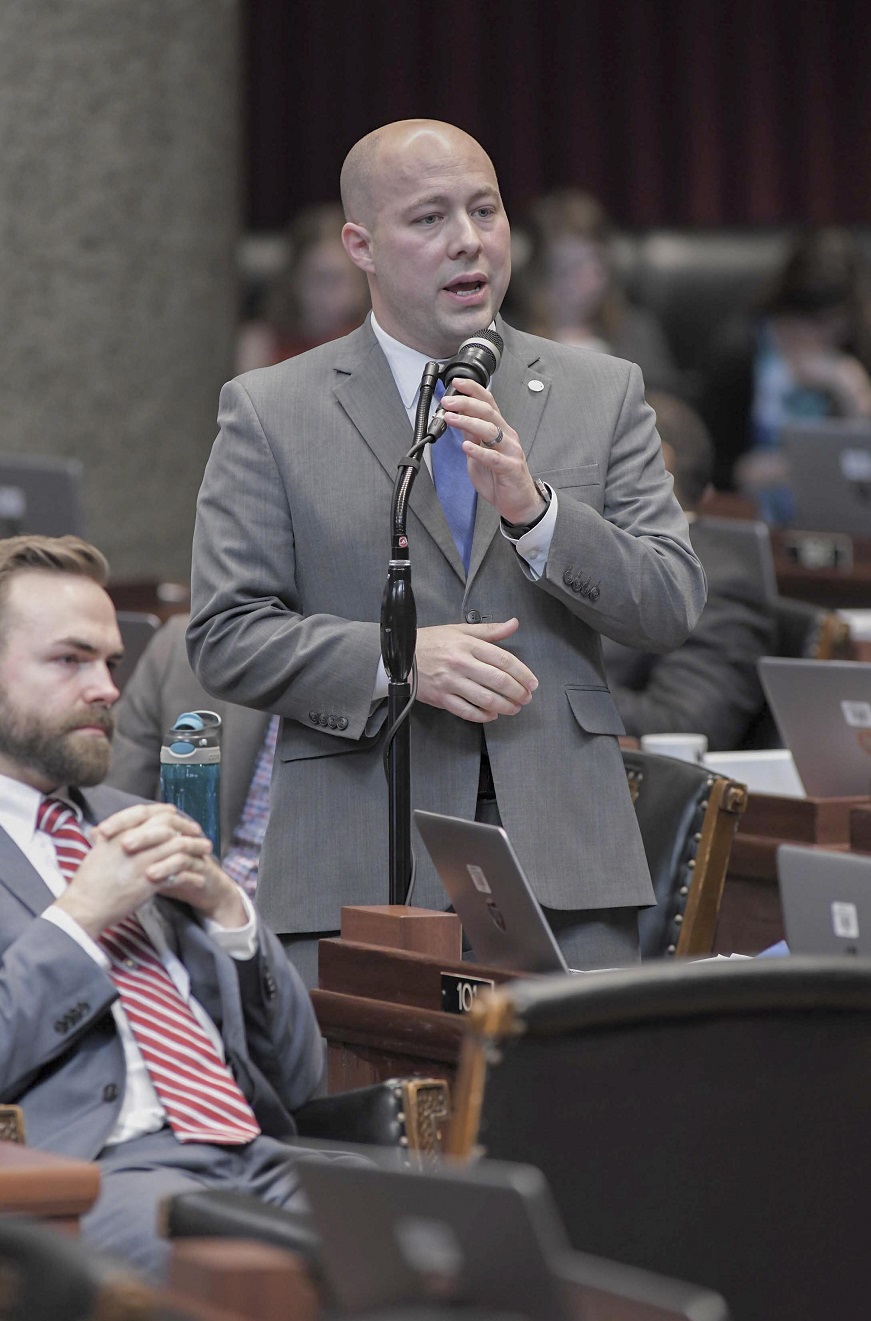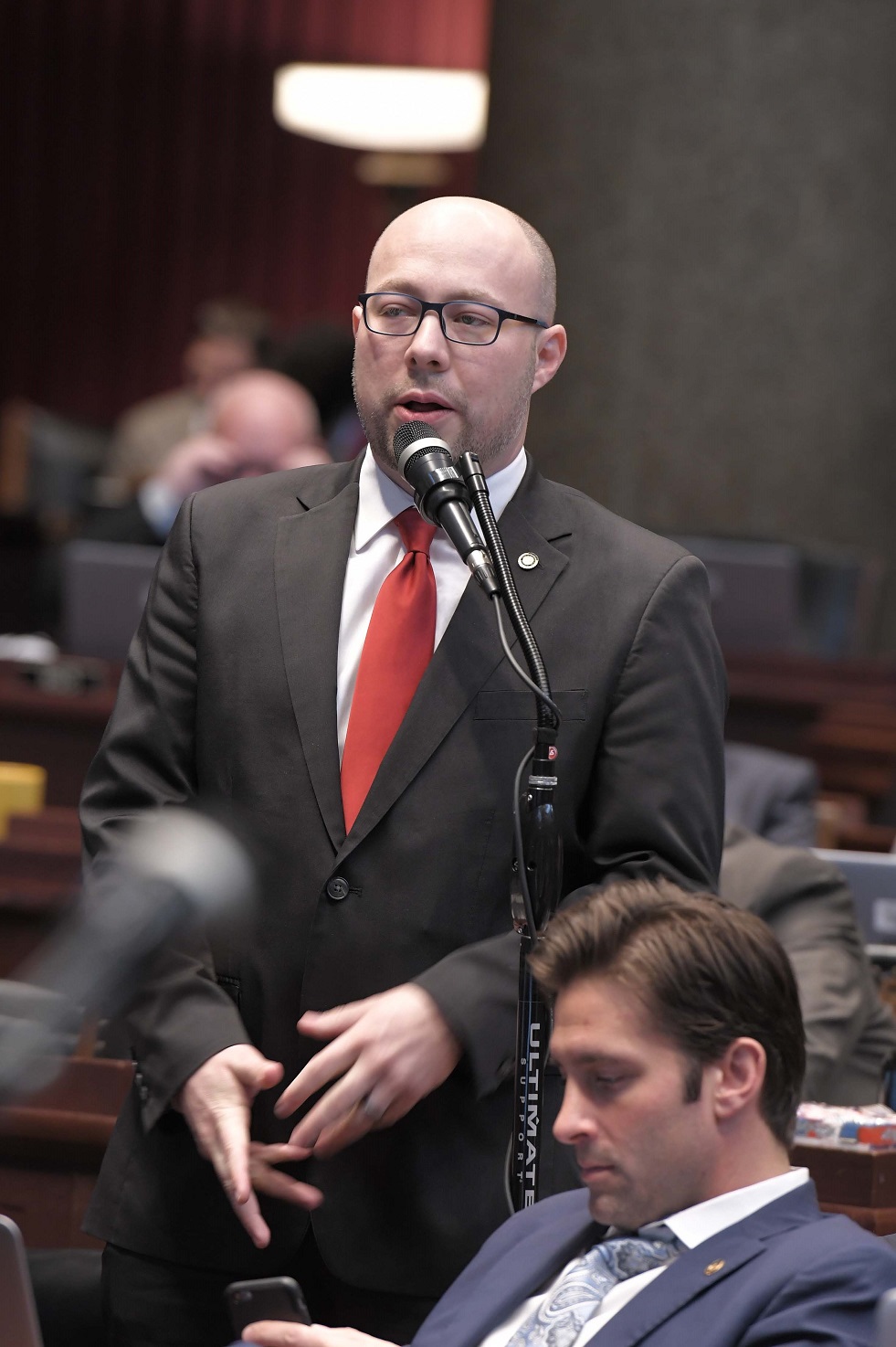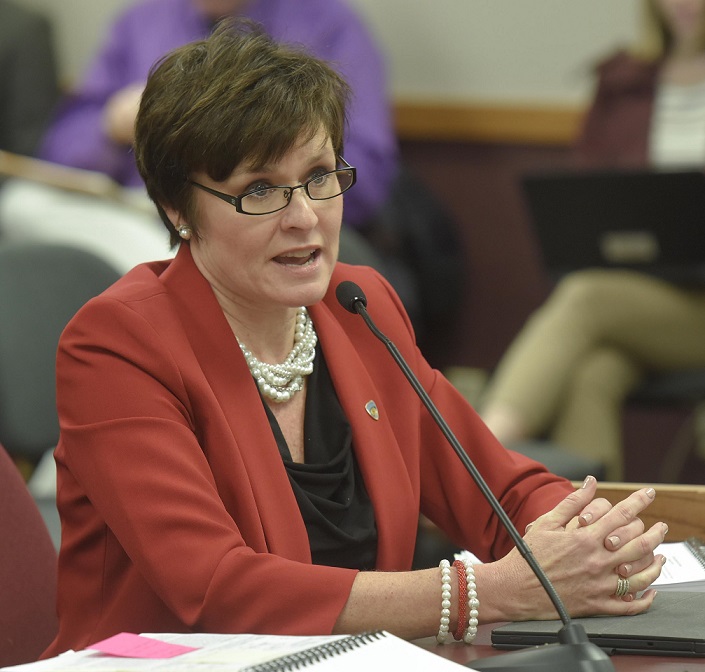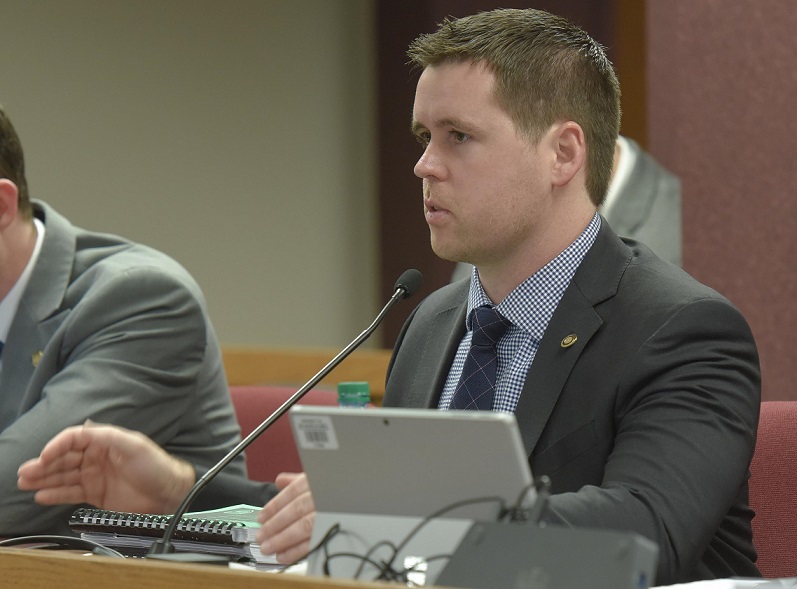The Missouri House has voted to give judges more flexibility in sentencing by easing Missouri’s mandatory minimum sentencing laws.

House Bill 1739 would allow judges to issue sentences below those minimums except in crimes that involved the use, attempted use, or threat of physical force, or certain non-consensual sex crimes against a minor. A case would have to have a “substantial and compelling” reason the minimum sentence would be unjust to the defendant or would not be needed to protect the public. The House voted Tuesday to send that legislation to the state Senate.
Carthage Representative Cody Smith (R) sponsors the bill. He said Missouri is on course to need two new prisons that would cost the state more than $485-million over the next five years.
Meanwhile, Smith said, other states where mandatory minimum sentencing laws have been eased have seen crime rates decline rather than increase.
He said nothing about HB 1739, which he calls the “Justice Safety Valve Act,” prevents a judge from handing down a sentence that follows those minimum sentencing laws.

Support for Smith’s bill came from both sides of the aisle, with several lawmakers including Representative Bruce Franks, Junior, (D-St. Louis) saying it is a reversal on what they called a “failed” war on drugs.
Pacific Republican Paul Curtman argued there should be no minimum sentences for any nonviolent crime.
Legislative projections are that HB 1739 would save the state more than $3-million a year by the time it is fully implemented in Fiscal Year 2023, by decreasing the number of people incarcerated in state prisons. That does not account for what the state would save if it does not have to build and maintain those two new prisons.
The House voted 148-0 to send the proposal to the state Senate.


